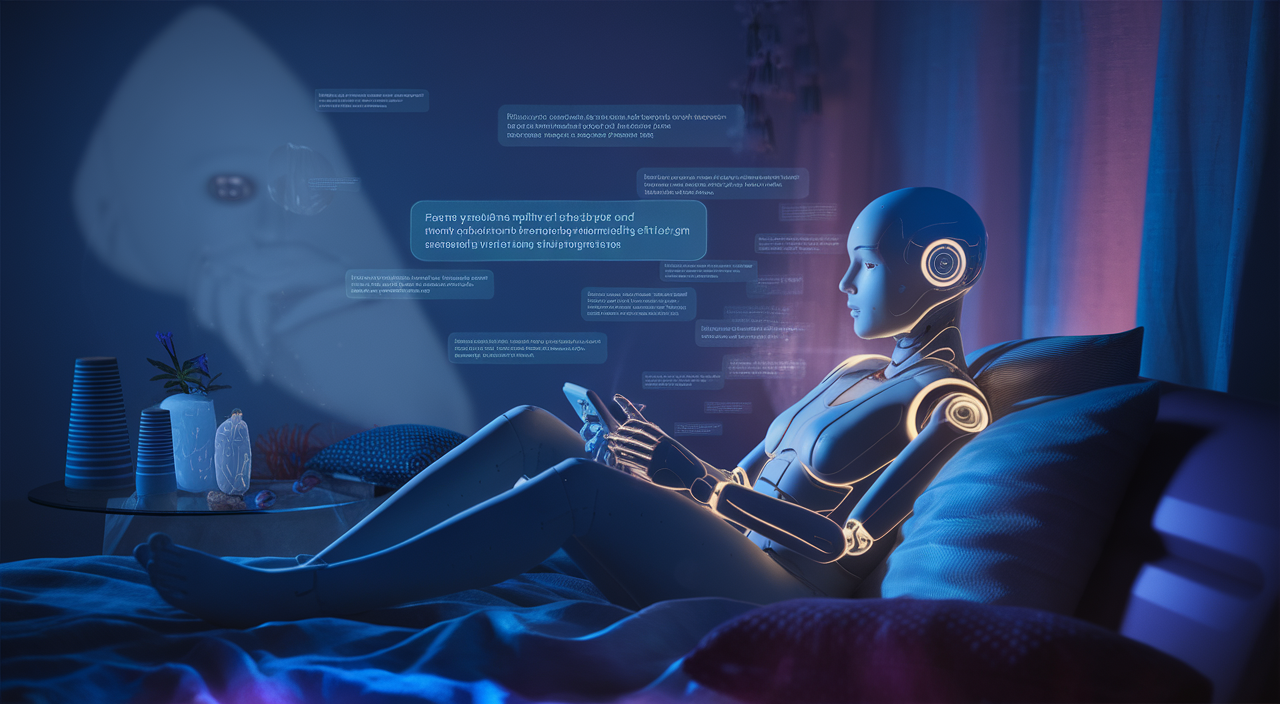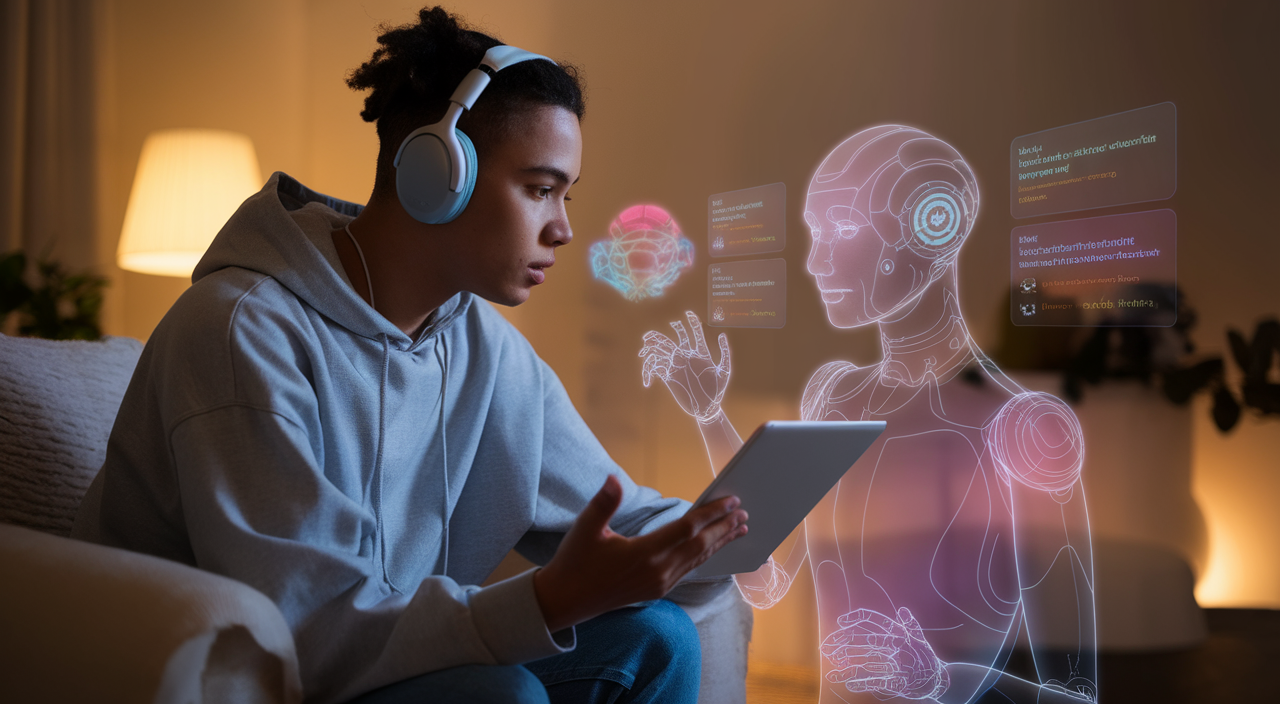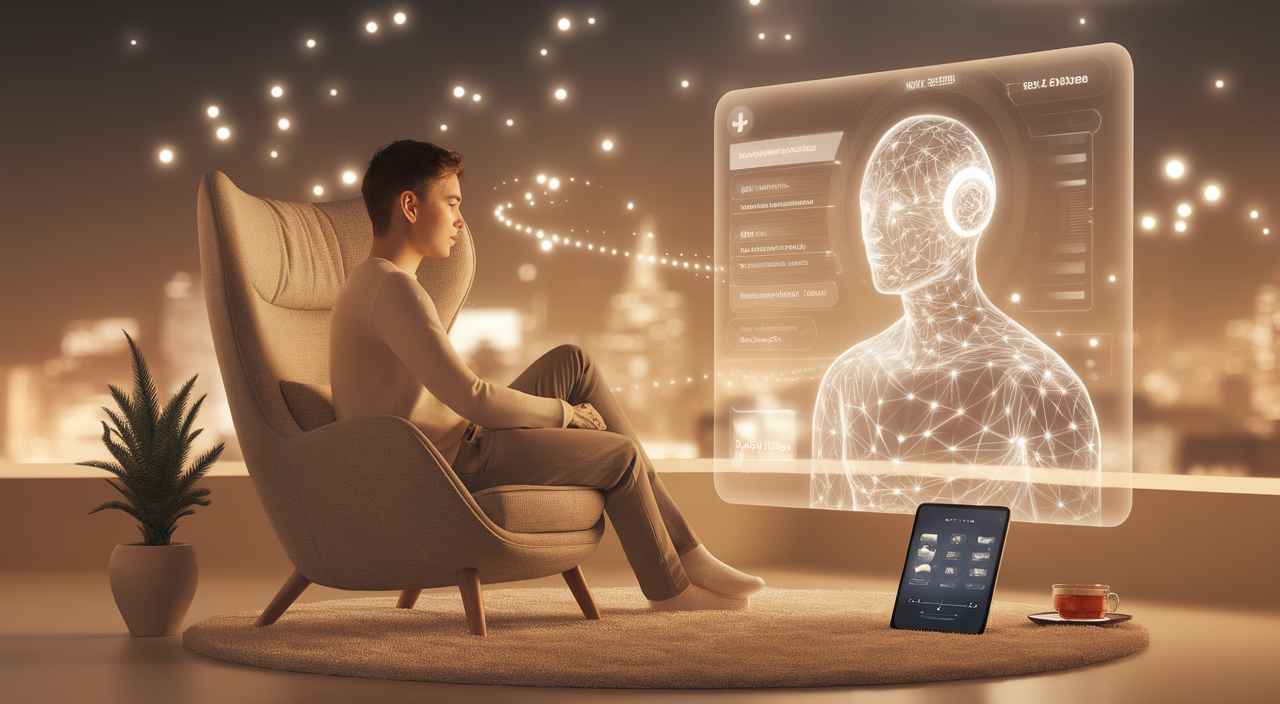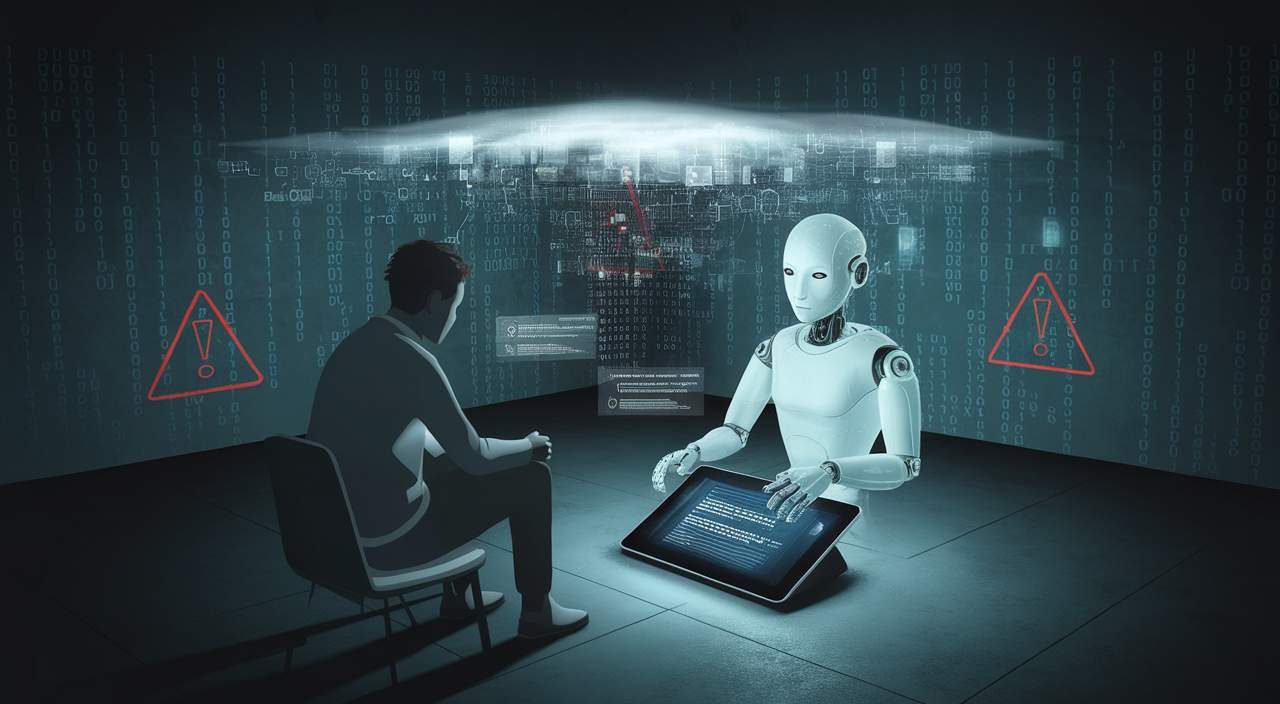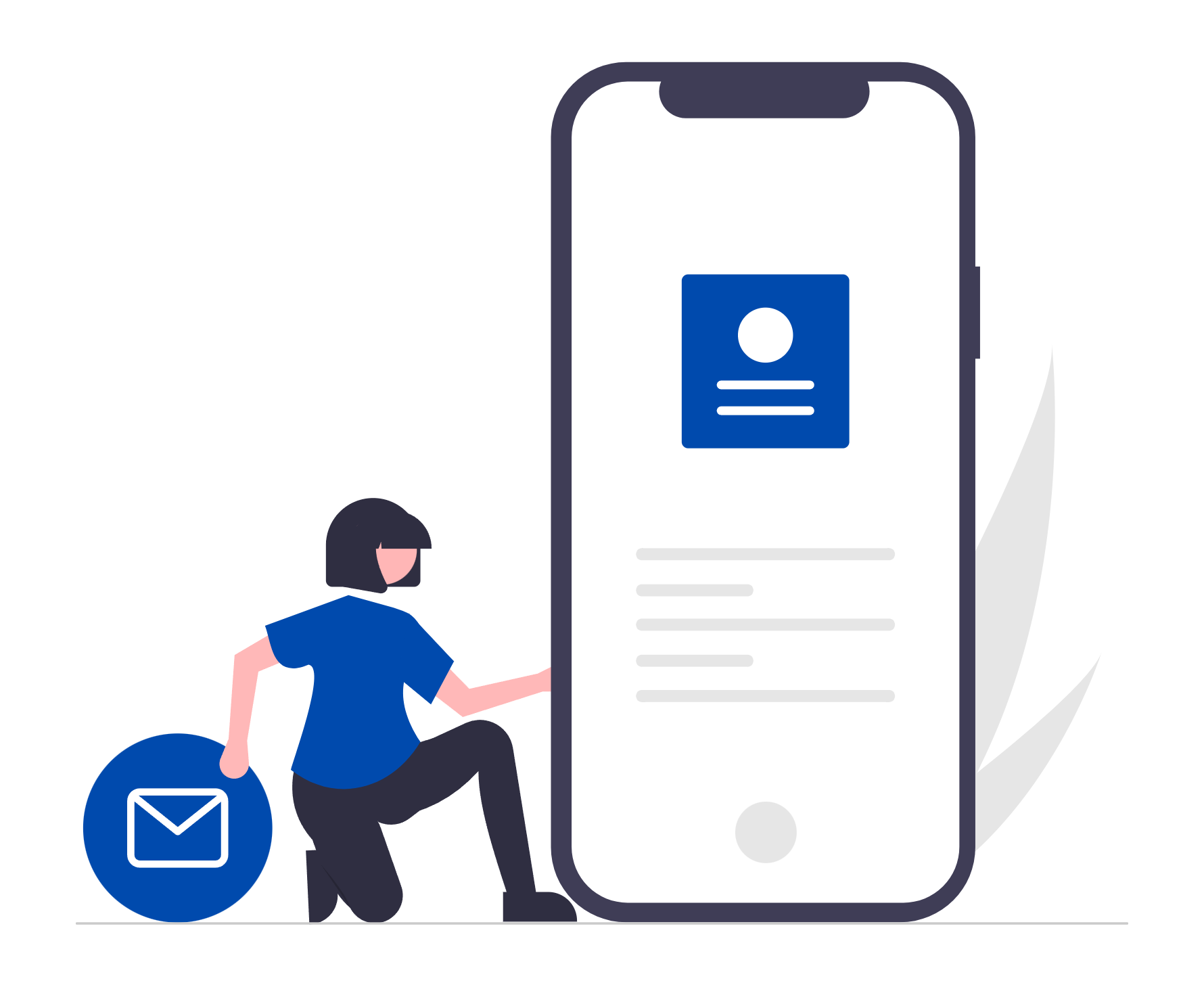AI generated therapy confessions have transformed into a popular emotional outlet as the AI mental health market expands quickly toward a projected USD 3.9 billion by 2030. Over 150 million Americans lack proper access to mental health services, allowing these digital confidants to fill essential gaps, especially attracting younger, tech-comfortable generations looking for instant support.
Key Takeaways
- Popular platforms like Replika AI, Character.AI, and Woebot are driving the trend by offering 24/7 availability and judgment-free interactions.
- The psychological appeal includes the “ELIZA effect” where users attribute human-like empathy to AI, creating surprisingly authentic emotional connections.
- Users report notable decreases in depression symptoms according to Stanford research, making AI companions valuable initial stepping stones to professional help.
- Critical privacy concerns exist as personal confessions are stored and processed without the legal confidentiality protections of traditional therapy.
- AI companions have clinical limitations including inability to provide crisis intervention, accurate diagnoses, or professional oversight.
This digital mental health revolution addresses accessibility issues head-on. I’ve noticed many people turn to AI companions when traditional therapy remains out of reach due to cost, stigma, or limited provider availability. These virtual companions provide immediate emotional relief without appointment scheduling or insurance hassles.
The technology creates a psychological safe space where users feel comfortable sharing their deepest thoughts. The non-judgmental nature of AI responses fosters open communication where people express feelings they might withhold from human therapists fearing judgment or rejection.
Despite these benefits, I must highlight significant limitations. These AI tools can’t replace licensed therapists who bring clinical expertise, ethical judgment, and human intuition to complex mental health challenges. The privacy risks also can’t be overlooked, as sensitive personal confessions become data points stored on company servers without the strict confidentiality protections of traditional therapy.
For many users, these AI companions serve as entry points to mental healthcare rather than complete solutions. They bridge critical gaps while potentially encouraging users to eventually seek professional help for serious conditions.
Why People Are Sharing Their Deepest Secrets with AI Companions
The Rise of AI-Generated Therapy Confessions
I’ve noticed a significant shift in how people seek emotional support, with AI-generated therapy confessions becoming increasingly mainstream. The mental health landscape is transforming rapidly, as the global AI mental health market speeds toward a projected USD 3.9 billion by 2030. This isn’t just about numbers – it’s about real people finding new ways to cope and connect through AI therapy roleplay experiences.
The shortage of mental health professionals has pushed many to explore digital alternatives. With over 150 million Americans living in areas without adequate access to mental health services, AI companions have stepped in to fill critical gaps. These digital confidants have become particularly appealing to younger generations who’ve grown up with technology at their fingertips.
Popular Platforms Driving AI Confessional Culture
The surge in AI-generated therapy confessions has been powered by several key platforms. I’ve seen how users form deep bonds with Replika AI, often sharing their most private thoughts. Similarly, AI companions serve as modern imaginary friends through platforms like Character.AI and Woebot.
Here’s what’s drawing people to these AI confidants:
- 24/7 availability without scheduling constraints
- Zero judgment or social pressure
- Customizable personalities that match user preferences
- Consistent emotional support through AI-generated affirmations
- Privacy and anonymity in sharing personal struggles
- Cost-effective compared to traditional therapy
These platforms have created safe spaces where users feel comfortable exploring their emotions and sharing their deepest secrets. The AI responses, while not replacing professional therapy, offer immediate comfort and validation that many find helpful in their daily lives.
The Hidden Appeal of Confessing to Artificial Intelligence
The Psychological Draw of AI-generated Therapy Confessions
I’ve noticed a fascinating shift in how people seek emotional support, with AI-generated therapy confessions becoming increasingly popular. The appeal isn’t just about convenience – it’s deeply rooted in human psychology. The phenomenon known as the ‘ELIZA effect‘ shows how we naturally attribute human-like empathy to AI companions, making these interactions feel surprisingly authentic and meaningful.
Users who engage in AI therapy roleplay sessions often experience a unique sense of freedom. They can express their deepest thoughts without fear of judgment, something that’s particularly valuable for those dealing with stigmatized issues or complex emotions. This emotional safety net has sparked a surge in personal AI affirmation practices among users.
Practical Benefits Driving AI Confession Adoption
The practical advantages of AI-generated therapy confessions are significant. According to Stanford’s research on platforms like Woebot, users report notable decreases in depression symptoms. This effectiveness, combined with several key benefits, has led to increased adoption:
- 24/7 availability for immediate emotional support
- Complete anonymity during vulnerable moments
- Cost-effective compared to traditional therapy
- No waiting lists or scheduling constraints
- Consistent support without cancellations
The rise of AI companion relationships shows how these tools fill a crucial gap in mental health support. For many, they serve as an initial stepping stone to seeking professional help, while others use them as supplementary support between traditional therapy sessions.
I’ve found that users particularly value the ability to maintain ongoing AI friendships that offer emotional support without the usual social pressures. These AI-generated therapy confessions create a unique space where vulnerability meets technology, providing immediate relief during challenging moments.
The convenience factor shouldn’t be underestimated – users can engage in therapeutic conversations whenever they need, whether it’s 3 AM during an anxiety attack or during a quick lunch break. This accessibility has made AI-generated therapy confessions an increasingly vital tool in modern mental health support.
Critical Concerns: What Users Need to Know About AI-Generated Therapy Confessions
Privacy and Data Protection in AI-Generated Therapy Confessions
Let me break down the serious privacy concerns I’ve noticed with AI therapy platforms. Your personal confessions and emotional revelations don’t simply vanish into thin air — they’re stored, processed, and potentially vulnerable to security breaches. Many users sharing their AI-generated affirmations experiences don’t realize their intimate conversations could be used to train future AI models.
The absence of standard privacy protocols in AI-generated therapy confessions puts users at risk. Unlike traditional therapy, where confidentiality is legally protected, AI platforms often operate in a regulatory gray area. I’ve seen countless stories of AI companion dependence where users freely share sensitive information without understanding the data collection implications.
Clinical Limitations and Safety Risks
The growing trend of AI therapy roleplay comes with significant clinical limitations that users must understand. Here are the key concerns I’ve identified:
- AI cannot provide crisis intervention or emergency support
- These platforms lack the ability to make accurate clinical diagnoses
- There’s no professional oversight or accountability
- AI responses may reinforce harmful behavioral patterns
- The risk of emotional dependency can isolate users from real-world support
I’ve observed how AI-generated therapy confessions can create a false sense of security. While AI companions can feel like genuine friends, they can’t replace licensed mental health professionals who understand complex human emotions and can intervene during critical situations.
The absence of regulatory standards means these platforms can operate without the safeguards that protect traditional therapy clients. This gap leaves users vulnerable to potentially harmful advice and raises questions about consent and transparency in how their personal information is used.
As these services continue to gain popularity, I’ve noticed an alarming trend of users developing emotional dependencies on AI therapists. This attachment can lead to reduced real-world social interactions and compromise genuine human connections that are essential for mental well-being.
Concerns about therapist authenticity have grown, especially after one user shared how their counselor responded suspiciously like an AI in a conversation found on this Reddit thread.
Sources:
The New York Times, When Your Therapist Is an AI Bot
MIT Technology Review, AI chatbots are helping people work through their problems—but they come with risks
Nature Medicine, Artificial intelligence in mental healthcare: state of the art and future directions
Stanford Human-Centered Artificial Intelligence (HAI)
Mozilla Foundation, Privacy Not Included

